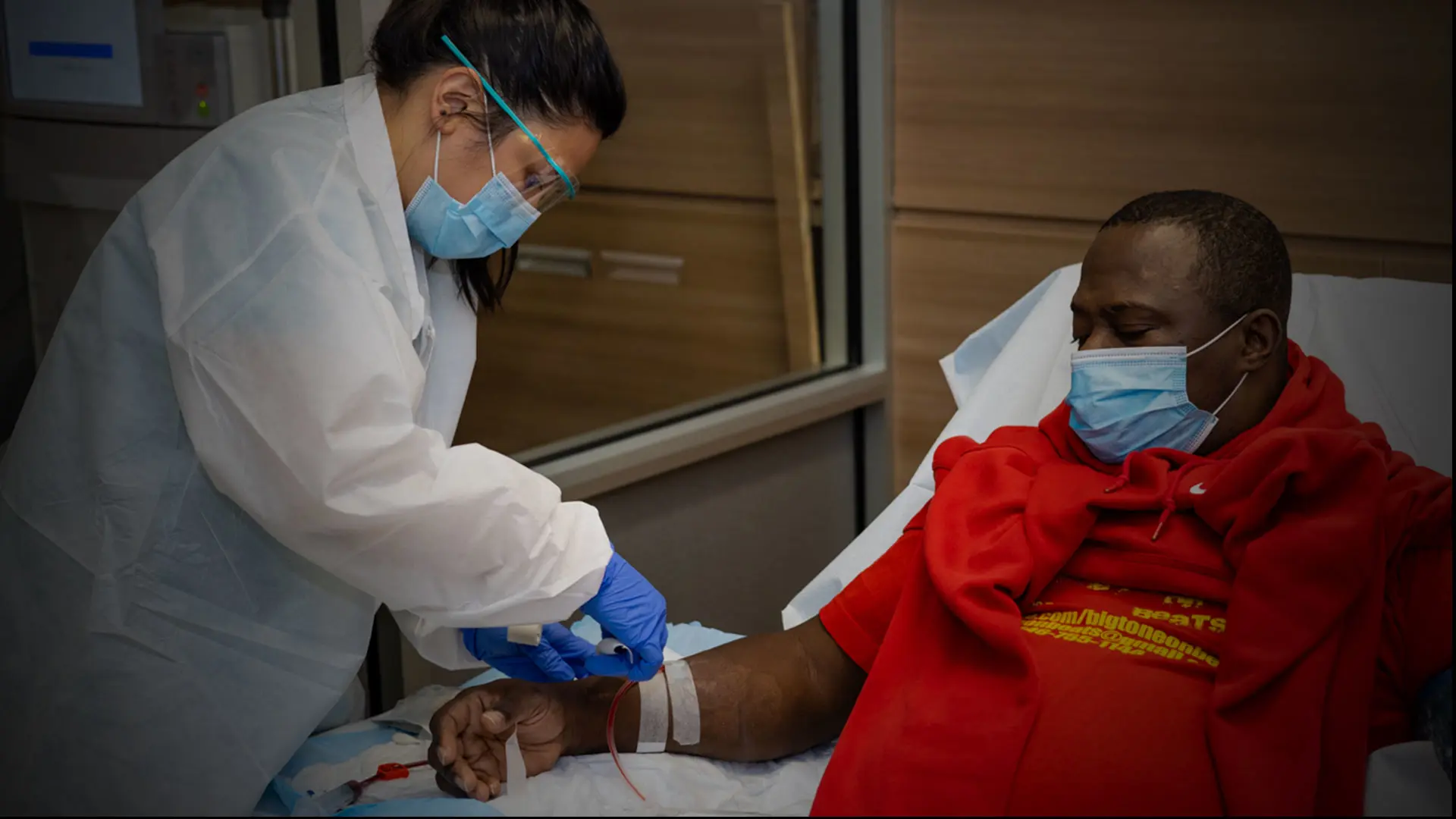Mount Sinai Health System had barely begun to combat the rapidly advancing COVID-19 pandemic in New York City when the battle opened on a second front. Patients presenting with associated acute kidney injury (AKI) were threatening to overwhelm its renal replacement therapy (RRT) staff and resources.
Realizing they needed to get a better handle on this development, Mount Sinai researchers, led by Lili Chan, MD, and Girish Nadkarni, MD, conducted a retrospective observational study of patients aged 18 and over who were admitted to six Mount Sinai Health System hospitals with laboratory-confirmed COVID-19 infection between February 27 and May 30, 2020. Of the 3,993 cases they reviewed, 1,835 (46 percent) had an associated AKI, with 347 of those (19 percent) requiring dialysis.
“These findings suggest that AKI is one of the main complications of COVID-19,” says Dr. Nadkarni, Assistant Professor of Medicine (Nephrology) at the Icahn School of Medicine at Mount Sinai. “We should be monitoring hospitalized patients closely for its development and, to the extent possible, developing preventive strategies to ensure their AKI does not worsen. Moreover, we need to work with hospital administration to ensure we have the necessary equipment and personnel in place to meet demand for RRT created by this pandemic, such as dialysis nurses.”
Published September 2020 in the Journal of the American Society of Nephrology, Drs. Chan and Nadkarni’s study, “AKI in Hospitalized Patients With COVID-19,” has provided some of the first insights on AKI prevalence, risk factors, and outcomes among COVID-19-positive patients in the United States. They found that patients who developed AKI tended to be older, and were more likely to have hypertension, congestive heart failure, diabetes mellitus, and chronic kidney disease (CKD). Among the 976 (24 percent) patients who were admitted to intensive care, 745 experienced AKI. Among all admissions, 29 percent of patients had stage 1 AKI, 19 percent had stage 2, and 42 percent had stage 3. CKD, male gender, and higher serum potassium at admission were all independent predictors of severe AKI. Urine studies were available for 656 patients, of whom 435 had AKI. Eighty-four percent of these patients had proteinuria, 81 percent had hematuria, and 60 percent had leukocyturia.
“Overall, the incidence of AKI we observed was much higher than we anticipated based on early reports from China, which suggested the incidence was less than 10 percent,” says Dr. Chan, Assistant Professor of Medicine (Nephrology) at the Icahn School of Medicine. “While there are many potential reasons, we speculate that differences in comorbidities are contributors to the difference in AKI incidence. We found higher rates of hypertension and diabetes among our patients, which we know are risk factors for negative outcomes among patients with COVID-19. We also have a more ethnically and racially diverse population, which raises the question as to whether there are genetic factors at play in the rates we are seeing.”
Looking at outcomes, Drs. Chan and Nadkarni noted that in-hospital mortality was 50 percent among patients with AKI versus 8 percent among those without AKI. Among the 832 patients discharged from hospitals, 541 (65 percent) had recovered from AKI and 291 (35 percent) had acute kidney disease (AKD). On follow-up with 212 patients, 28 (36 percent) of 77 with AKD had recovered kidney function and 18 (13 percent) of the 135 who had recovered from AKI were found to have AKD.

“The proportion of people who recovered from COVID-19-related AKI is much lower than the recovery rate we have observed among patients who developed AKI as a result of other conditions, leading us to hypothesize that the post-hospitalization burden of COVID-19-related kidney disease is going to be substantially greater,” Dr. Nadkarni says. “This is of particular concern as there is a wealth of evidence linking AKI and failure to recover to negative downstream outcomes such as cardiovascular disease and mortality.”
Drs. Chan and Nadkarni are planning a longitudinal study to assess outcomes among patients who developed COVID-19-related CKD and see whether they progress to end-stage renal disease faster than patients who were not infected with the virus. They are also conducting mechanistic studies to identify therapeutic targets and they have developed an algorithm to help identify patients at risk of developing severe AKI requiring dialysis.
“The goal is that, within 24 to 48 hours of a patient’s hospitalization with COVID-19, we can generate a risk score indicating their likelihood of developing AKI requiring dialysis, and we are working on making that tool available through our electronic health record system,” Dr. Chan says.
Featured

Steven Coca, DO
Associate Professor of Medicine (Nephrology)

Girish Nadkarni, MD
Irene and Dr. Arthur M. Fishberg Professor of Medicine
